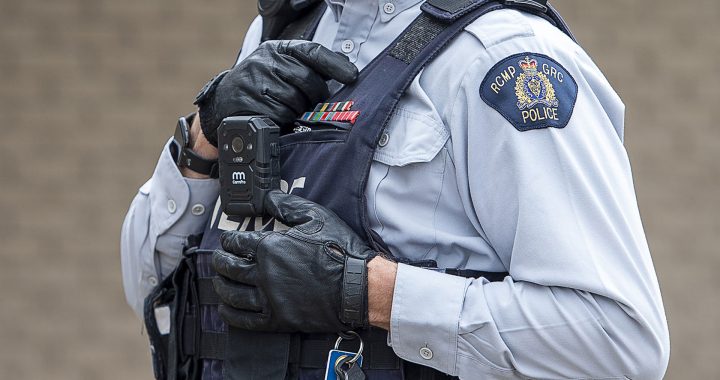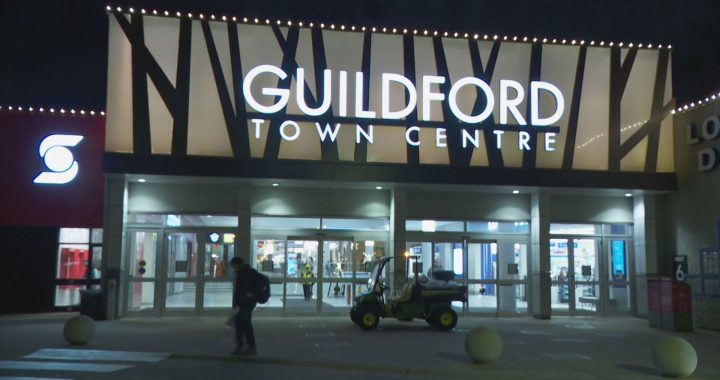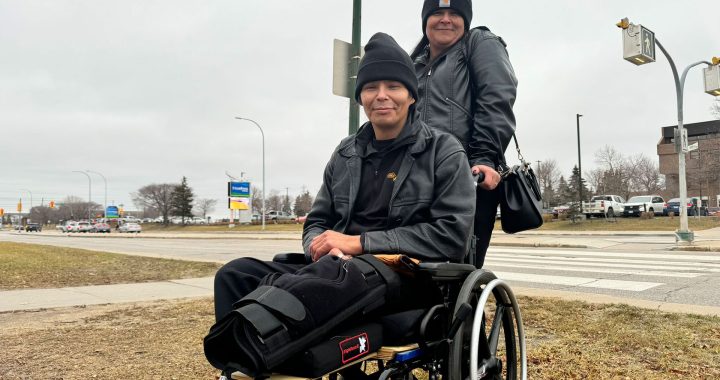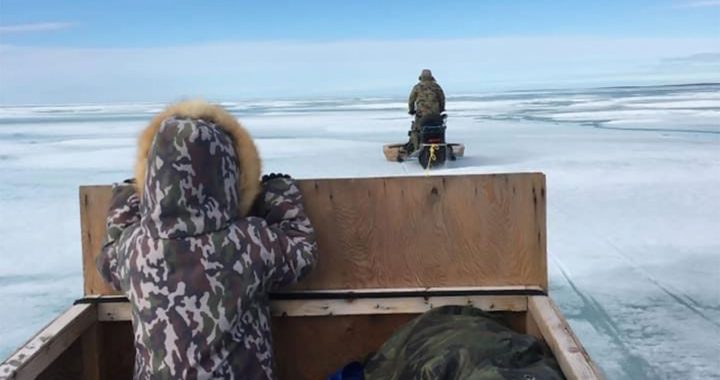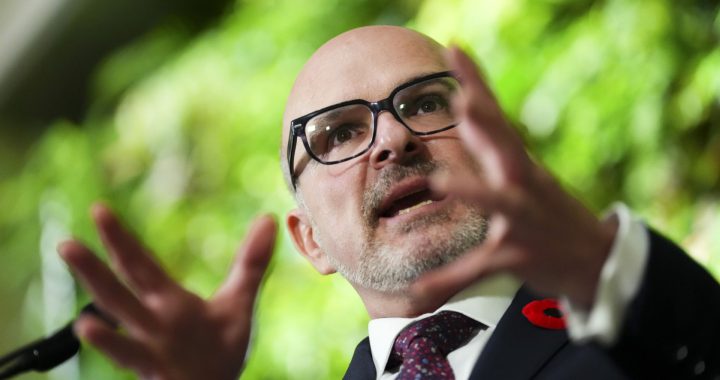As some people in Val D’Or are calling for the city to “lock up” homeless people, the city’s Native Friendship Centre is looking to find solutions for a growing population of unhoused people.
The move comes after a heated city council meeting on May 15 where Val-d’Or residents took to the podium to express their fear and rage over the presence of homeless people, who are mainly Indigenous, in the downtown core.
“It’s Native people who are there [in the nearby free campsite], in a group, and they’re there, regularly, and they’re leaving there like zombies at five, six in the morning, and where do they go? They go to the city,” said one resident in French.
“When you arrive seven in the morning in an alleyway, and you see five zombies, it’s scary as hell. It’s not up to the Sûreté Québec to apply the rule to kick out a gang that’s there. In the free campground, sometimes there’s 25, 30, 40 people there at a time… The city has to act at some point.”
This was met with applause from the other community members in attendance and supported by the region’s provincial deputy, Pierre Dufour, who said at the meeting “When we talk about repressive measures, we mean find a way to lock up that famous core of 25, 30 individuals that are sparking fear in everyone here right now.”
Val-d’Or is a mining city of about 30,000 people in northwestern Quebec, about 500 km from Montreal – and has been a confluence for Cree, Anishnabe and Inuit communities.
Edith Cloutier, the director of Val-d’Or’s Native Friendship Centre, said most of Val-d’Or’s Indigenous population is not homeless and many of those who are have been there for generations.
“When we hear people saying stuff like “Well, we should send the homeless people back to their communities,” but their home is the city, it’s not the community,” said Cloutier.
The city’s homeless community is disproportionately Indigenous – and according to the Native Friendship Centre’s statistics, 570 people accessed services at Willie’s Place, one of their partner homeless shelters, in 2022-2023 – an increase of 125 people from last year. Seventy per cent of those individuals are Indigenous.
Johanne Lacasse, manager of the Native Friendship Centre’s services for homeless people, said that homeless people can’t just be tossed aside.
“Often the solution for the population, also the businesspeople of the downtown area is ‘not in my backyard,’ so the reflex is to chase away the persons that are in situations, homeless situations but they’re not going away,” she said.
Cloutier said racial tensions have made it even harder to talk to the public about solutions for homeless people.
“It’s not an Indian problem. What we say is that homelessness is a social issue that is present in Val-d’Or just like in many other big cities,” said Cloutier.
Lacasse said that while there are many services available to the homeless population in the city, like day shelters, intervention workers, health services and rehab programs, some attitudes need to shift to see real change.
“We feel that there is a contribution that needs to be made not only by our key partners but also by the population,” said Lacasse. “The social tensions are real, and in certain cases, our homeless people feel that tension. They are victims of racism.”
Victor Thusky, an Algonquin man who has lived on and off the streets of Val-d’Or for the past five years, has experienced this firsthand.
Fifteen years ago, Thusky said he was beaten, unprovoked, by a group of 30 or so white men.
“From head to toe, every one of them kicked me. and I was kind of surprised I was still alive,” he said. “I was in bed for 10 days after that.”
He says that while violence has diminished since then, Indigenous people still regularly hear racist remarks directed at them in Val-d’Or.
“They put everybody in the same boat. That’s why I think it’s their mentality, you know, they have to change their mentality towards individuals out there,” he said. “I don’t blame anybody, but it’s their upbringing, it’s how they see people, what they’re living there, you know?”
Thusky said he was a police officer before alcoholism took over his life.
“I had an apartment, I had everything, just like that, I lost it. I went through a tough time, so that’s why I ended up in the streets there,” he said.
With the help of the Native Friendship Centre’s intervention workers and shelter services, he has been sober for about a month.
“I’m just a person that’s struggled, that’s still struggling, but I’m trying to make it positive,” said Thusky.
Even though he is no longer drinking, he still is not allowed in most stores in the city.
“I’m not even allowed today, none of the stores, you know, not even Jean Coutu, I was kicked out there, trying to get my medication and felts for my shoes.”
More police?
Céline Brindamour, the mayor of Val-d’Or, has been requesting the province send more officers to combat the feeling of insecurity in the city. The city is policed by Quebec’s provincial police, Sûreté Québec (SQ).
Back in 2015, a Radio-Canada report revealed allegations from Indigenous women of sexual and physical abuse by SQ officers. This was one of the prompts for the Viens Commission, a public inquiry into the relationship between police and provincial departments and Indigenous peoples in Quebec, which later revealed that officers disproportionately ticketed Indigenous people in the area.
But when Brindamour asked Dufour directly for more police officers, he said, in French, “You’ve worked with a pile of shit since you arrived at your post, which was particularly created since 2015 when there was the Radio-Canada investigation, which was full of lies that attacked very honest police officers.
“I’m not saying there might’ve been a few corrupt officers 30 years ago, but these police officers were attacked. That report won prizes, but on the other side, it created a divide between the police force and the municipality that didn’t protect its officers in the aftermath.”
Dufour said that officers in Val-d’Or are doing the “strict minimum” at their jobs.
These comments prompted cries for Dufour’s resignation from various Indigenous groups, including the Val-d’Or Native Friendship Centre – and Cloutier said this was not an accurate description of community relations with police.
In 2016, the city created a “mixed” police station in Val-d’Or staffed by Indigenous SQ officers and social workers. Cloutier said these changes and efforts from the Native Friendship Centre have allowed them to rebuild Indigenous trust in police in the community.
“It’s been very delicate, very sensitive work, but we’ve succeeded over the years to find, to renew that dialogue, that space to walk together towards healing and reconciliation,” she said.
Thusky also said that his view of community police has improved since those interventions.
“Police brutality, I’ve seen those things on the streets, not with me but with other people, but they diminished ever since the Friendship Centre had stand up for the people,” he said.
The Native Friendship Centre supports Brindamour’s request for more SQ officers, said Lacasse and Cloutier.
“It will obviously be part of the solution to ease the anxieties of the population,” said Lacasse.
Lacasse says the other parts of the solution include building housing for people experiencing homelessness – something the Native Friendship Centre is planning to do in the next year – and ensuring people like Victor can get the help they need to heal.
“It makes me feel good about myself to be able to have hopes and dreams,” said Thusky, “so that’s one thing that’s helping me feel good about myself to be responsible, day by day.”




